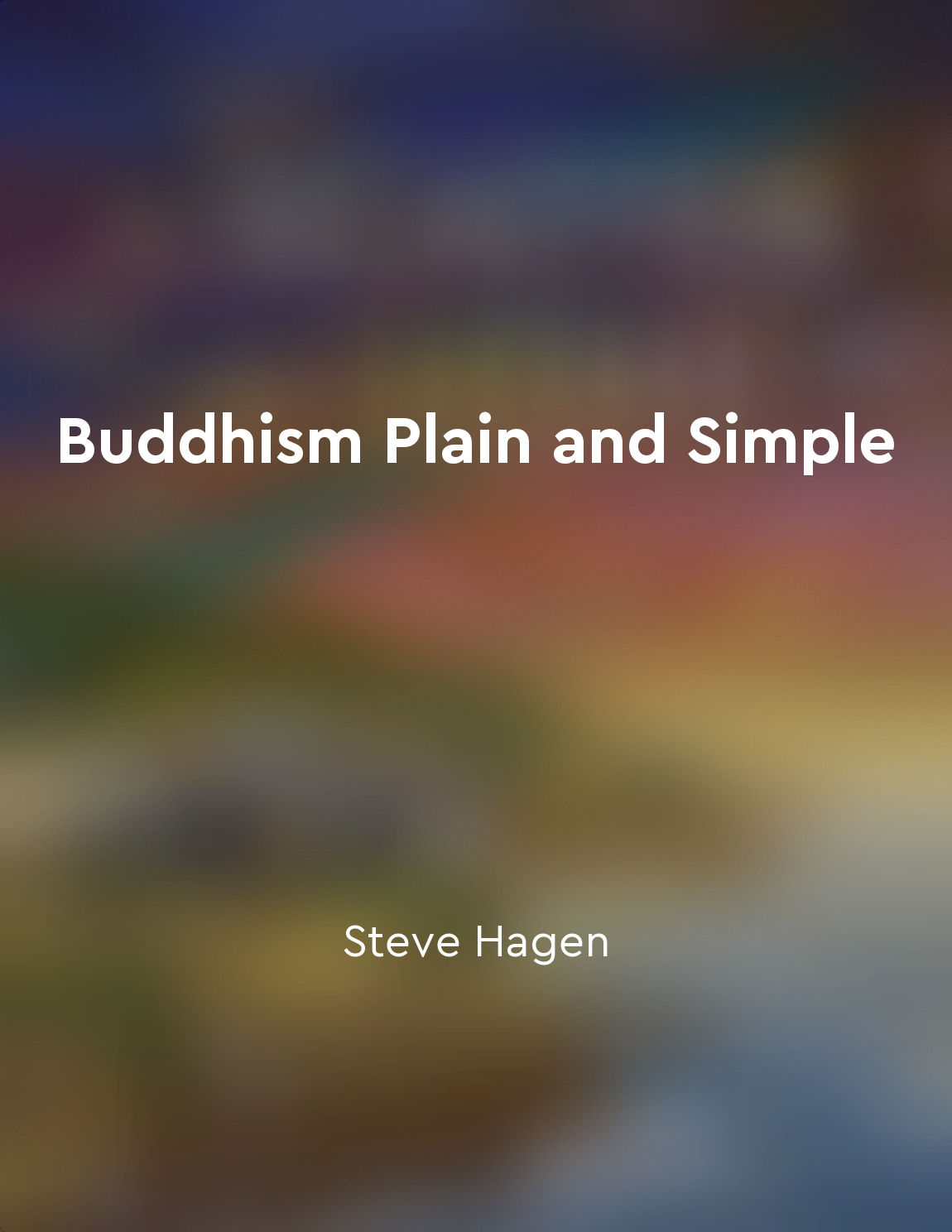Audio available in app
Let go of judgment towards yourself and others from "summary" of Buddhism Plain and Simple by Steve Hagen
When we judge ourselves or others, we are creating a separation between what we think should be and what actually is. This separation leads to suffering because it creates a sense of division and conflict within us. Instead of accepting things as they are, we cling to our judgments and expectations, causing ourselves unnecessary pain and frustration. In the practice of Buddhism, we are encouraged to let go of our judgments towards ourselves and others. By doing so, we can cultivate a sense of openness and acceptance towards all experiences, regardless of whether we perceive them as positive or negative. When we release our judgments, we can see things more clearly and respond to them with greater wisdom and compassion. Letting go of judgment does not mean that we condone harmful behavior or ignore our own shortcomings. It simply means that we acknowledge the reality of the present moment without attaching unnecessary labels or criticisms to it. By letting go of our judgments, we can free ourselves from the burden of constantly evaluating and comparing ourselves to others. When we release our judgments, we can also cultivate a sense of interconnectedness with all beings. We recognize that we are all inherently flawed and imperfect, yet we are also deserving of love and compassion. By letting go of our judgments, we can develop a deeper sense of empathy and understanding towards ourselves and others.- Letting go of judgment is about cultivating a sense of humility and acceptance towards the ever-changing nature of life. It allows us to embrace the full spectrum of human experience with an open heart and mind. By releasing our judgments, we can find a sense of peace and freedom that transcends the limitations of our own narrow perspectives.


